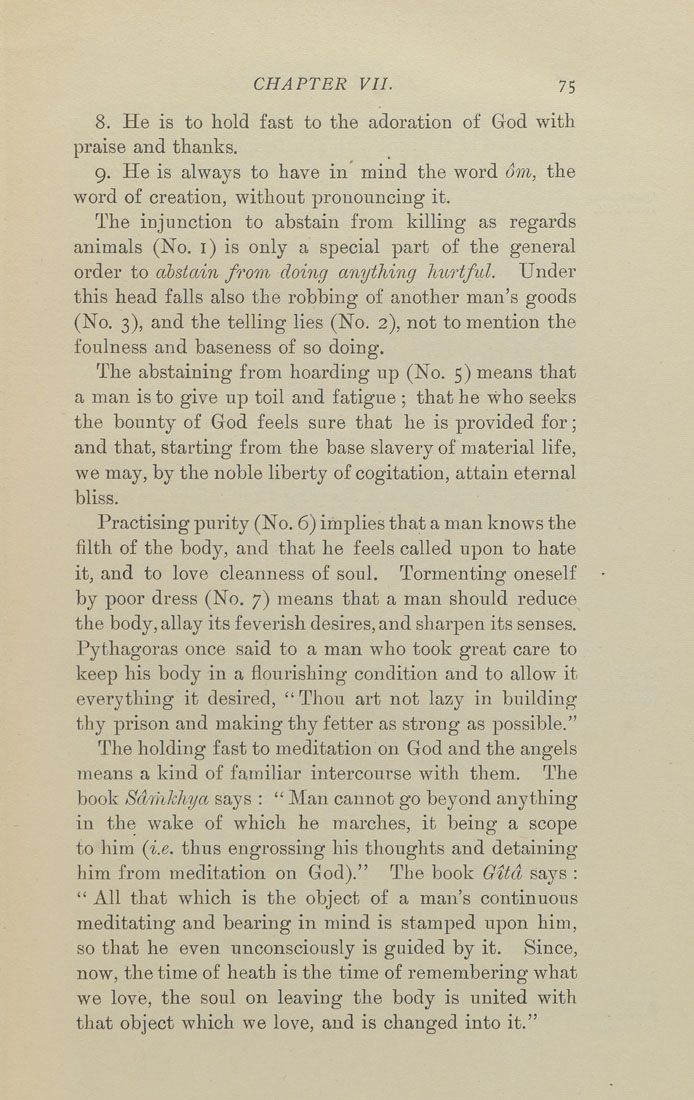Bīrūnī, Muḥammad ibn Aḥmad, Alberuni's India (v. 1)
(London : Kegan Paul, Trench, Trübner & Co., 1910.)
|
||
|
|
|
|
| Page 75 |

CHAPTER VII. 75 8. He is to hold fast to the adoration of God with praise and thanks. 9. He is always to have in mind the word dm, the word of creation, without pronouncing it. The injunction to abstain from killing as regards animals (No. i) is only a special part of the general order to abstain from doing anything hurtful. Under this head falls also the robbing of another man's goods (No. 3), and the telling lies (No. 2), not to mention the foulness and baseness of so doing. The abstaining from hoarding up (No. 5) means that a man is to give up toil and fatigue ; that he who seeks the bounty of God feels sure that he is provided for; and that, starting from the base slavery of material life, we may, by the noble liberty of cogitation, attain eternal bliss. Practising purity (No, 6) implies that a man knows the filth of the body, and that he feels called upon to hate it, and to love cleanness of soul. Tormenting oneself by poor dress (No, 7) means that a man should reduce the body, allay its feverish desires, and sharpen its senses. Pythagoras once said to a man who took great care to keep his body in a flourishing condition and to allow it everything it desired, "Thou art not lazy in building thy prison and making thy fetter as strong as possible." The holding fast to meditation on God and the angels means a kind of familiar intercourse with them. The book Sdriikhya says : " Man cannot go beyond anything in the wake of which he marches, it being a scope to him (i.e. thus engrossing his thoughts and detaining him from meditation on God)." The book Gitd says : " All that which is the object of a man's continuous meditating and bearing in mind is stamped upon him, so that he even unconsciously is guided by it. Since, now, the time of heath is the time of remembering what we love, the soul on leaving the body is united with that object which we love, and is changed into it." |
| Page 75 |







